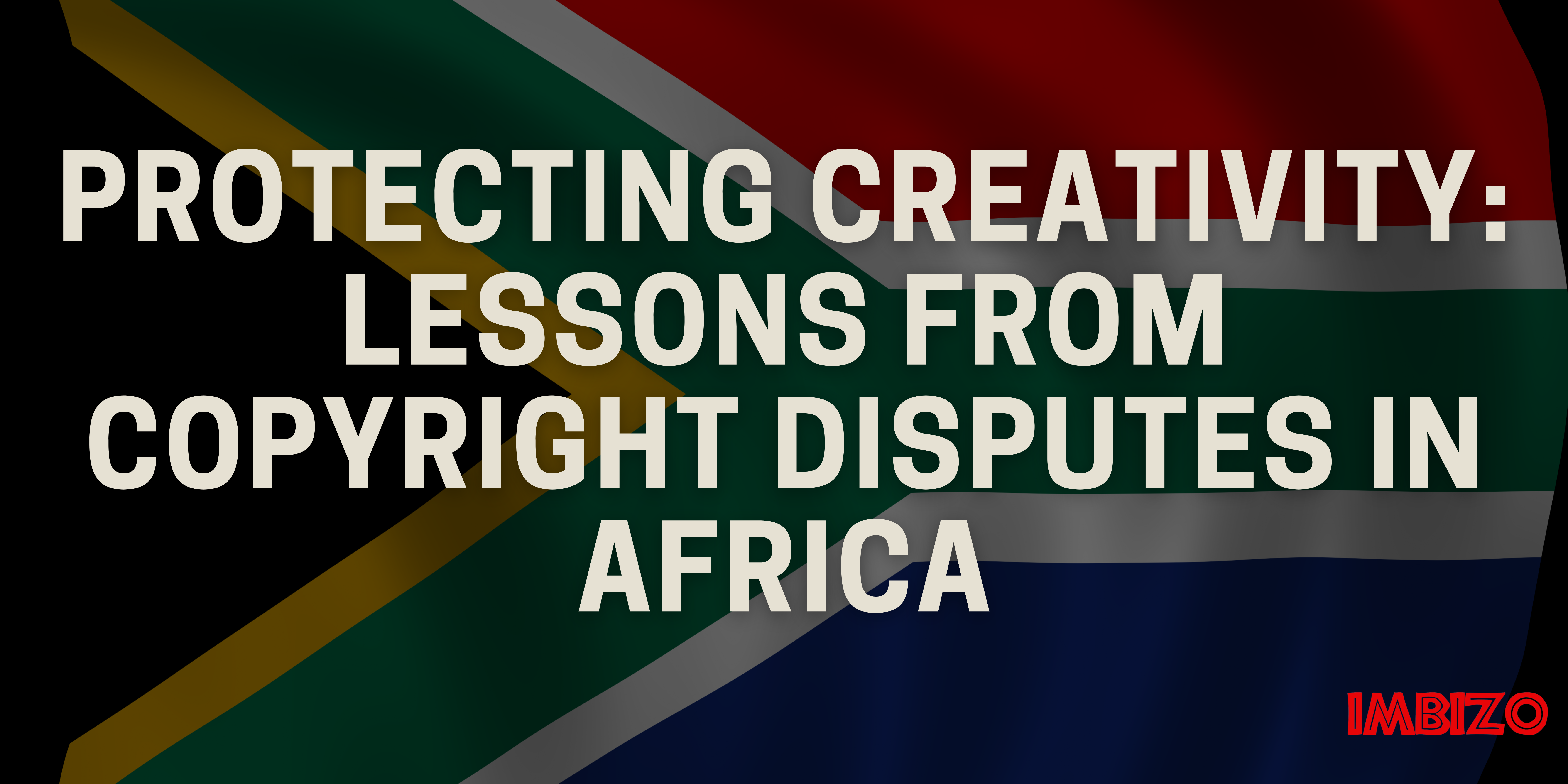The African music industry has seen tremendous growth, producing global hits and fostering incredible talent. However, with this rise, copyright disputes have become a common challenge, often leading to lengthy legal battles and loss of income for creatives. At Imbizo Magazine, we have observed numerous cases where artists find themselves entangled in disputes over ownership, royalties, and intellectual property. These conflicts highlight the urgent need for education on copyright laws and proper music business practices.
Copyright is a legal right that grants creators exclusive ownership over their work, including songs, lyrics, and compositions. It ensures that artists can control how their work is used, who profits from it, and how royalties are distributed. Unfortunately, many African artists either lack awareness of these rights or fail to secure proper legal protection, leaving them vulnerable to exploitation
High-Profile Copyright Disputes in Africa
Several well-known cases have shed light on copyright challenges in the African music industry:
- DJ Charmza vs. Master KG: DJ Charmza alleged that he was the original producer of the global hit “Jerusalema” but was neither credited nor compensated. This dispute highlights the importance of written agreements when collaborating.
- Joyous Celebration vs. Former Members: Past disputes between the gospel ensemble and former vocalists over royalties have demonstrated the significance of contractual clarity in group projects.
- Prince Kaybee vs. Former Producers: Several producers have accused the South African DJ of using their work without proper acknowledgment or compensation, showing the risks of informal music production processes.
Lessons for African Artists
From our observations, artists can take the following steps to avoid similar disputes:
- Register Your Work: Every musician should register their songs with copyright organizations such as SAMRO (South African Music Rights Organization), CAPASSO (Composers, Authors, and Publishers Association), and similar bodies in their country.
- Use Written Agreements: Before collaborating, artists, producers, and songwriters should sign contracts detailing ownership, royalties, and credits.
- Understand Publishing Rights: Many artists do not realize that the publishing side of music is just as important as performance rights. Owning publishing rights ensures long-term earnings.
- Educate Yourself About Music Law: The industry is full of legal loopholes. Musicians must either educate themselves or consult legal professionals to safeguard their intellectual property.
Work with Professional Music Administrators: Having a professional oversee music distribution, licensing, and royalties can prevent future disputes
Organizations like SAMRO, CAPASSO, and the Copyright Society of Malawi (COSOMA) play crucial roles in protecting artists. They help in licensing, royalty collection, and dispute resolution. However, artists must take proactive steps to engage with these organizations and understand their policies. Copyright disputes are a serious challenge in Africa’s creative sector, but they can be prevented through awareness, legal protection, and industry professionalism. At Imbizo Magazine, we urge artists to take their rights seriously and ensure that their creative work is well protected. By learning from past disputes, African musicians can build a more secure and profitable industry for the future.

The point we are missing is that
Our voices are our Intellectual property and we are not covered in the policies of Intellectual property as right owners of our voices- instead we are referred to as frelancers meaning that authors producers recording companies as well as publishers are right owners.
What is needed is to decolonize
Copyright law .
To share my little knowledge, Copyright law was established by British in 1710 that’s colonizers laws who still govern our systems.